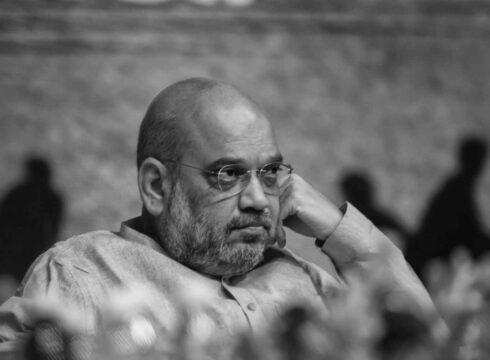SUMMARY
The home minister said that at least 1100 people have been identified using the technology
Shah added that facial recognition does not discriminate when it comes to communities and religions
The government had used similar technology during earlier anti-CAA protests
Inc42 Daily Brief
Stay Ahead With Daily News & Analysis on India’s Tech & Startup Economy
Addressing the Lok Sabha on Wednesday (March 11), home minister Amit Shah has said that the government used facial recognition technology to identify those involved in the recent Delhi riots that claimed the lives of at least 50 individuals in the national capital.
Shah said that at least 1100 people have been identified using facial recognition technology. “We have also fed Aadhaar, driving license data into this software. The software has identified 1100 people, 300 of these people came from UP to carry out violence,” he added.
The home minister said that the facial identification technique does not discriminate between communities and religions. “We entered Voter ID data and other information available with the government to identify people who were involved in the riots,”
The minister further informed Lok Sabha that 40 teams of Delhi Police have been formed to track these 1100 people. Arrests will be made only in cases where is hard evidence against those involved, he clarified.
Critics have reportedly urged the government to hold consultations and formulate a law before deploying facial recognition technology for law enforcement. However, this is not the first time facial recognition technology has been used by the government during protests.
In February, reports surfaced that police in Delhi and Uttar Pradesh used facial recognition technology amid protests against India’s controversial Citizenship Amendment Act (CAA), which even turned violent in some places.
At the time, Delhi Police used facial recognition technology on recordings of the protests to identify protestors. Although it said that police forces used facial recognition to identify many protestors, deputy commissioner of police at Delhi’s Crime Records Office Rajan Bhagat said that the department is only using it to nab targets.
Numerous activists and organisations have raised their voices against this use. Caricaturist Rachita Taneja said that she doesn’t have any idea what they are going with the collected data. “We need to protect ourselves, given how this government cracks down,” she said.
The Internet Freedom Foundation (IFF), an Indian organisation which advocates for the protection of digital rights and liberties, had said that police should define clearer rules on the facial recognition technology. The non-profit body also demanded that the police should also provide a disclosure of the software’s audits and algorithms. In a similar sentiment, IFF has now reportedly said, “The use of Aadhaar for this purpose without any judicial authorisation violates the judgement of the Supreme Court in KS Puttaswamy v. UoI (2019).”
Despite concerns from privacy groups, startups offering facial recognition technology are seeing great demand in India. Calling fears of mass surveillance in India as exaggerated, founder of Staqu, Atul Rai said that there is a need for regulation to avoid potential problems. There are difficulties in collecting information because of India’s large population of 1.3 Bn, he added. Staqu works with prison authorities to develop a surveillance wall based on machine vision and facial recognition.
According to a TechSci report, the facial recognition technology business is expected to grow from $700 Mn in 2018 to over $4 Bn by 2024 thanks to India’s national-level surveillance plans. The central government has already opened bids to build a centralised facial recognition surveillance system across India.
Note: We at Inc42 take our ethics very seriously. More information about it can be found here.


